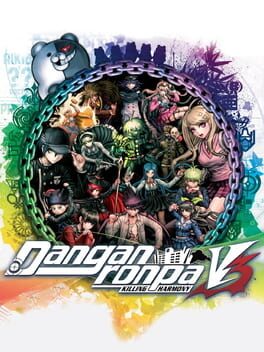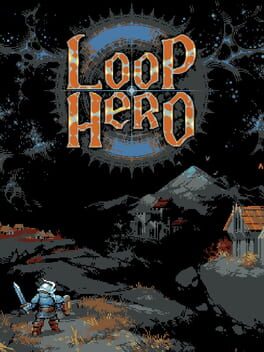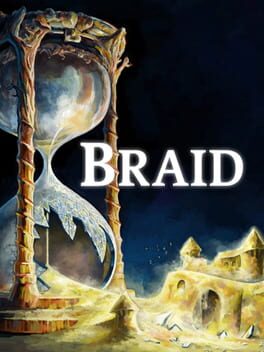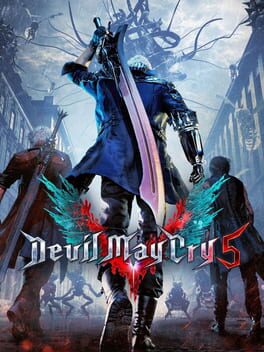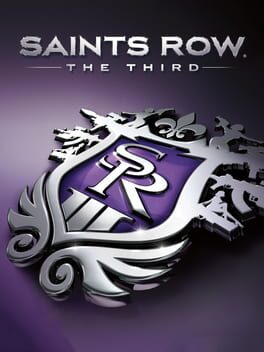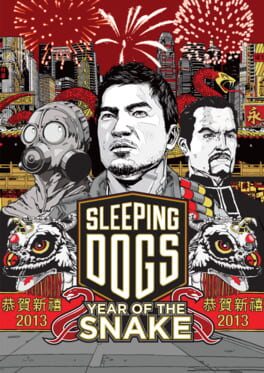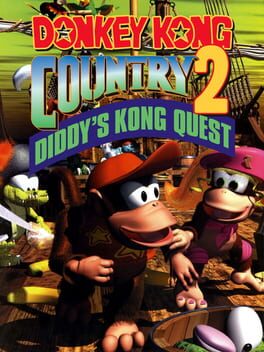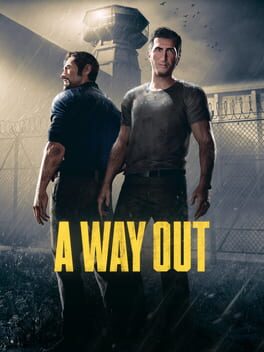jaedecell
Did you know that basically every case in this game alludes in some way or another to fiction or constructing stories/unrealities? I just think that's a neat little touch.
I wonder at times if the Death Game genre needs to be aware of itself as a piece of fiction to really serve any purpose beyond entertainment value. What does the level of cruelty that can be found in these works accomplish if there's nothing beyond the surface of entertainment? You ever read Future Diary or Gantz? That shit SUCKS. You may care about these characters and their struggles in the moment, but do you carry any of that with you after they die? Do you carry any of that with you after the story ends? Or is it just another book on the shelf for you to forget about? Isn't there something deeply dehumanizing to that and don't we regularly see that dehumanization reflected back at us in the amount of abysmal human suffering we try to ignore in our day-to-day lives? Do we even have the capacity anymore for hope or despair? Am I just asking a bunch of rhetorical questions because I'm a hack-writer who can't quite put into words why I think this is one of the greatest games of all time?
The answer to all of those questions is probably yes.
I wonder at times if the Death Game genre needs to be aware of itself as a piece of fiction to really serve any purpose beyond entertainment value. What does the level of cruelty that can be found in these works accomplish if there's nothing beyond the surface of entertainment? You ever read Future Diary or Gantz? That shit SUCKS. You may care about these characters and their struggles in the moment, but do you carry any of that with you after they die? Do you carry any of that with you after the story ends? Or is it just another book on the shelf for you to forget about? Isn't there something deeply dehumanizing to that and don't we regularly see that dehumanization reflected back at us in the amount of abysmal human suffering we try to ignore in our day-to-day lives? Do we even have the capacity anymore for hope or despair? Am I just asking a bunch of rhetorical questions because I'm a hack-writer who can't quite put into words why I think this is one of the greatest games of all time?
The answer to all of those questions is probably yes.
2022
I forgot to log this when I played through it several months ago, which probably speaks volumes about the impact it had on me. A friend of mine fell into a massive hole with this game sometime last year and then another friend of mine fell into that same hole shortly before I did. When I talked to her about it before I started my tumble into that same hole, I remember saying something to the effect of "I don't want to play that game because I know exactly what it's going to do to me." And sure enough, when I took my first step forward, I fell down the hole. All of this isn't to say that I think the game is bad or exploitative. In a world of pay-to-win gacha games and loot boxes, something like this that uses the flashy aesthetics and Skinner Box methodology of casinos for a one-time payment of like three bucks is relatively harmless. But it left me with little-to-nothing beyond that constant dopamine drip. Even a great character-action game or beat-em-up will leave something behind with you that allows you to fondly look back and say, "hell yeah, that was dope," but Vampire Survivors and games of it's ilk just leave me feeling bad for having sunk so much time into them. Like I could've been learning a second language or practicing piano. But instead, I sat in front of a slot machine and pulled a lever for 50 hours.
2021
Apparently I've played this game for almost 50 hours. I don't think it's that great. I do love the art design. As a story, it's a neat concept especially with how it melts together with the gameplay loop, but it leaves me feeling as blank and empty as the protagonist feels in the beginning. Maybe that's some kind of commentary on the recent trend of indie games leaning into the "NUMBER GOES UP!!!" genre ala Vampire Survivors, but it's still doing that thing at the end of the day. And it's doesn't even do that with the flare and absolute absurdity that Vampire Survivors does. It's a mindless timesink, but not in a way that loses you hours because of the constant casino-like dopamine flow. Instead, you lose hours because all of the goalposts are just far enough out of reach and the loops are all brainless enough to sleep through that you think "maybe this will be the run where I finally get the supply I need" but it isn't. It never is. Apparently I've played this game almost 50 hours.
2023
the first time Leon did a cute little backflip while i yelled "WHEE!" i realized that this remake was indeed just as fucking dumb as the original was. our current generation of graphical hardware may give it the veneer of being overly serious and grim, but then you see the las plagas dogs that look more like a cartoon wolf who's eyes are gonna bulge out of its head while it howls AWOOOOOOOOOGA and that impression slips away.
comparing it as an actual game to the original, i think i haven't properly played through it since 2005 and i honestly don't feel like i ever had as high of an opinion on it as other folks. like it was good, but it was also balls hard and i don't have fond memories of the QTEs outside of the absurdity of The Knife Fight. this remake was also balls hard at points, but at least never felt like i was hitting walls the same way as the original. i genuinely kind of love the way that they've adapted those old QTEs into a modern context with stuff like the parry system and leon's aforementioned cute lil flips. there's certainly a bit of charm lost from the game by removing the cutscenes QTEs, but i've honestly always felt like they were the worst part of the original. like my most negative memories of it are associated with those. sure, it's rad that Salazar has a giant stone mech of himself, but also buddy my last save was like 45 minutes i do NOT wanna deal with this bootleg Mario Party minigame again.
anyways, this turned into more of a review of original RE4 sorry. this remake is really good. they've canonically made Leon into a catboy, so certainly a GOTY contender.
comparing it as an actual game to the original, i think i haven't properly played through it since 2005 and i honestly don't feel like i ever had as high of an opinion on it as other folks. like it was good, but it was also balls hard and i don't have fond memories of the QTEs outside of the absurdity of The Knife Fight. this remake was also balls hard at points, but at least never felt like i was hitting walls the same way as the original. i genuinely kind of love the way that they've adapted those old QTEs into a modern context with stuff like the parry system and leon's aforementioned cute lil flips. there's certainly a bit of charm lost from the game by removing the cutscenes QTEs, but i've honestly always felt like they were the worst part of the original. like my most negative memories of it are associated with those. sure, it's rad that Salazar has a giant stone mech of himself, but also buddy my last save was like 45 minutes i do NOT wanna deal with this bootleg Mario Party minigame again.
anyways, this turned into more of a review of original RE4 sorry. this remake is really good. they've canonically made Leon into a catboy, so certainly a GOTY contender.
2008
I don't remember when I played this. I believe it was sometime in the 2010s. It was at least after The Witness. Pretty sure I watched Indie Game: The Movie long before I ever thought about picking it up. Yeah, I probably thought, "Y'know, The Witness is okay, I wonder if I'll like that Braid game this guy did. Heck, it was featured in a documentary I enjoyed and everyone says it was a phenomenal landmark in videogames." I fail to remember much of anything about my experience with it and, when I look at the last 15 years of games since it came out, I feel like it's the game of that Indie Game: The Movie trifecta that left the smallest footprint, if any. Super Meat Boy drove the 2d platformer renaissance for Western developers and Fez presented a world of puzzles so enigmatic and dense, yet drenched in an alluring aesthetic that you couldn't help but dive deeper into the pool. Meanwhile, Braid had uhhh mediocre at best platforming, puzzles that have left no lasting impression on me, an aesthetic comparable to a sack of potatoes, and hamfisted attempts at artistic concepts such as "What if Mario, but in Real Life?" and "You can reverse time in the game, but you can't in real life. Anyways, humans created the atom bomb." I truly hated my time with it and I don't think I'll ever understand the praise it receives, but hey isn't that quite apt when the creator of the art I'm critiquing says that critics shouldn't criticize the art that they don't "truly" understand the point of? Who decides "the point" of a piece of art anyways? I guess the artist "truly" knows what their intention was when they made it, but is intention always the same as "the point"? The intention behind dropping two nukes on an enemy nation might be to deal heavy damage and weaken the opposing forces, but "the point" is to establish an overwhelming aura of dominance that ripples through generations. Did you like me comparing this dude's attempts at artistry to the nuclear bombings of Japan in WWII? No? Was it too much? Yeah I guess that's fair. Anyways, my wife left me for the Chad Knight in that other castle.
2022
While I would still consider this a worthwhile experience, I definitely wish that I had played this before Automata. The structure of revisiting events with a new perspective or context feels rough in a way beyond just the intent of having the player really marinate in the emotions and ramifications of what they've done. Now it certainly could be argued that, by making the player work harder to acquire everything they need for the True Ending, it helps make The Choice of that ending more impactful. But also man, I have a full-time job, I would've been absolutely livid if I made it to the 2nd half of the game and realized that I needed to start my whole playthrough over because I missed a random weapon in the 1st half. There's also an overall lack of thematic cohesion between the main story and side quests that I felt really made Automata as strong an experience as it was. Replicant also has a fast travel system that isn't introduced until the 2nd half of the game and is mostly worthless once you realize that it has an entirety of 4 stops. The long and short of it is that Automata (a perfect game imho) ironed out what I consider a lot of the wrinkles I saw in playing Replicant (a pretty good game that's feels like a slog at a fair deal of points).
The main thing I appreciate in Replicant over Automata is how much the team was willing to branch out with different genres of gameplay. Stuff like the text adventure in the Forest of Myth, the painfully obvious Resident Evil influence in Emil's mansion, and Diablo perspective shift in the research lab have a quite charming impact.
The main thing I appreciate in Replicant over Automata is how much the team was willing to branch out with different genres of gameplay. Stuff like the text adventure in the Forest of Myth, the painfully obvious Resident Evil influence in Emil's mansion, and Diablo perspective shift in the research lab have a quite charming impact.
2019
A fantastic game for the first like 7 or so hours. Unfortunately, once you get into the inverted castle, the enemy layout feels less thoughtfully considered and more like they just wanted to pad out the back half of the game for folks that wanted to truly 100% it. The game as a whole is still a great time, but having to use the mist power to get through practically every room felt less like a victory lap for Alucard after getting all their powers back and more like awkwardly trying to worm your way through a crowded convention center.
Finally replayed this for the first time in a decade and, although there's a lot of great dumb fun to be had in some of the missions, the stink of late 00's / early 10's
game design is ripe in the boring combat and an open-world that mostly felt inconvenient to traverse (even after unlocking aircrafts). There's still phenomenal moments like diving out of the helicopter to Power or the Insurance Fraud missions, but that's mostly what this game is in hindsight: A series of Pretty Good Moments tacked onto a kinda mediocre open-world game.
game design is ripe in the boring combat and an open-world that mostly felt inconvenient to traverse (even after unlocking aircrafts). There's still phenomenal moments like diving out of the helicopter to Power or the Insurance Fraud missions, but that's mostly what this game is in hindsight: A series of Pretty Good Moments tacked onto a kinda mediocre open-world game.
2006
About 5 years ago, I played through the first chapter of Mother 3 with the same friend that I played through all of Earthbound with. In fact, not only did we play through Earthbound together, we also streamed us doing so. It was a unique experience, but that's besides the point. I remember it being equally as charming to me as Earthbound had been and being slightly disappointed at the early death of a certain character, yet still curious of where things would go from there. Then, our lives got away from us. It was roughly around the same time that I transitioned and my friend also went through massive changes in their life. Turns out we should have been just as curious about where our lives were going too.
Anyways, last month I started streaming this game from the beginning with both that same friend and my wife. Immediately, I could tell that Mother 3 was going to get its claws into me far more than Earthbound had all those years ago. Having let my experience with the gameplay of Earthbound marinate in my brain for all those years, I was able to more readily take advantage of the damage tickers and the rhythm-based combos kept me constantly engaged with every encounter. The cast of characters popped in ways that the minimalistic charms of Earthbound's had left me mildly underwhelmed and the music slapped massively. The world-building and story were more tangible, if that phrasing makes sense, than Earthbound. Where Earthbound conveys those elements primarily through the act of moving through and examining the world, the world and story spent it's first several chapters happening to Lucas and me. By the time I felt like my party, especially Lucas, had a tangible impact on the world around us, the story had finally started unfurling itself to me.
That alone was enough to make me appreciate the story; however, once you start taking into account the anti-capitalist themes of this story, it struck me at my core. I can think of few games that so deftly captures the way in which not only capitalism rips apart our sense of community and alienates us from every aspect of our lives, but also how capitalism and fascism are intrinsically linked. Especially a Nintendo game. I could touch on the final scenes of the game and how they made me cry in front of the internet, but I don't think trying to capture those in text would convey much of anything. The only one I want to address is a quiet moment in the dark, in which a character talked to me about the world. How was my life going? How much had things changed? They wished me well and hoped for the world to treat me well too. After five years of life, highs and lows, love and loss, to have this little digital piece of art tell the faceless world, which was currently watching me finish said piece of art, wish me the best and tell that aforementioned world to treat me well made me feel ways that no game, not even the copious amounts of metafiction I've consumed, feel that way.
Anyways, last month I started streaming this game from the beginning with both that same friend and my wife. Immediately, I could tell that Mother 3 was going to get its claws into me far more than Earthbound had all those years ago. Having let my experience with the gameplay of Earthbound marinate in my brain for all those years, I was able to more readily take advantage of the damage tickers and the rhythm-based combos kept me constantly engaged with every encounter. The cast of characters popped in ways that the minimalistic charms of Earthbound's had left me mildly underwhelmed and the music slapped massively. The world-building and story were more tangible, if that phrasing makes sense, than Earthbound. Where Earthbound conveys those elements primarily through the act of moving through and examining the world, the world and story spent it's first several chapters happening to Lucas and me. By the time I felt like my party, especially Lucas, had a tangible impact on the world around us, the story had finally started unfurling itself to me.
That alone was enough to make me appreciate the story; however, once you start taking into account the anti-capitalist themes of this story, it struck me at my core. I can think of few games that so deftly captures the way in which not only capitalism rips apart our sense of community and alienates us from every aspect of our lives, but also how capitalism and fascism are intrinsically linked. Especially a Nintendo game. I could touch on the final scenes of the game and how they made me cry in front of the internet, but I don't think trying to capture those in text would convey much of anything. The only one I want to address is a quiet moment in the dark, in which a character talked to me about the world. How was my life going? How much had things changed? They wished me well and hoped for the world to treat me well too. After five years of life, highs and lows, love and loss, to have this little digital piece of art tell the faceless world, which was currently watching me finish said piece of art, wish me the best and tell that aforementioned world to treat me well made me feel ways that no game, not even the copious amounts of metafiction I've consumed, feel that way.
Despite growing up with an N64, Ocarina of Time was always one of those "canon" video games that I managed to avoid. For anyone that doesn't know me, I tend to bounce off of games that have heavy historical importance, but whose mechanics have been finely honed in their genre since the time they came out. This was perhaps the one expectation that I had of Ocarina of Time before playing it, especially with the ways in which some folks classify it as a "nostalgia trap" or try to direct you to the 3DS remaster for it's quality of life improvements. Surprisingly, however, I only ran into few rough patches from a mechanical standpoint and the majority of those that I did came more from emulation, as opposed to the base game itself. Perhaps the one mechanic in the game itself that seemed to rub me the wrong way was the touchiness of first person aiming. That being the only strong complaint I have in regards to the mechanics of a nearly 25-year old N64 game, which was one of the earliest examples of a 3D adventure game, speaks to the strength of its design. Briefly tying into that point, I was going to complain about how the Z-Targeting definitely leaves a bit to be desired, however, even the jank of that mechanic is understandable; when it doesn't function to your liking, you can mentally pause and realize it's because the enemy/object isn't properly in Link's field of view.
What's even more surprising than the strength of it's mechanics is how, despite the only other Zelda game I've played to completion being Breath of the Wild, the sense of wonder and adventure is still palpable in OoT. The scale is obviously smaller and yet there are little touches in the world that make it feel wider and dangerous. There were multiple occasions where I've accidentally strayed from a path only to find that it connects to parts of the map I never thought would meet. Once again, for an early 3D adventure game, it is truly impressive in the way it constructs the world of Hyrule. The way Death Mountain looms in the background of the Temple of Time or how you float down the river in Gerudo Valley only to find yourself washing up on the shores of Lake Hylia. Again, it feels silly to be in awe of such primitive tricks of design, but it speaks to the effectiveness of these tricks that a modern series like Dark Souls still utilizes these concepts 15 years later.
Speaking of exceptional design, outside of getting extremely rough ideas of the places I needed to head next or occasionally looking up an obvious solution that I just blinded while streaming it, it's almost astonishing just how well Ocarina of Time guides you through it. Navi may be infamous for just how much they yell at you to listen to them, but that insistence on giving the player direction in what was, at the time, a scary new world of 3D adventure was ingenious. The player could go wherever they wanted, but there was always an occasional reminder of the task at hand. Although it can take a bit to acclimate to the older logic of the game's puzzles, once you do, you find that they live up to the classic Zelda creed of creating puzzles that make the player feel smart. Perhaps what speaks best to just how briskly paced and tightly designed this game is is how I had my initial ROM hardlock on me at the Ice Caverns, roughly 15-20 hours into my playthrough; upon getting another working ROM, I was able to blaze through the first half of the game in an afternoon or two without any kind of guidance. Even the most infamous dungeon, the Water Temple, was only mildly tedious during my playthrough and that was only because I missed a relatively well telegraphed visual cue.
Perhaps the only thing in the game that felt mostly standard and unimpressive was the story. I wasn't expecting much outside of standard Hero's Journey stuff, so it wasn't too much a shocker though. It's thematically interesting if you take it in tandem with the ideas that Breath of the Wild explores, such as passing the buck of responsibility onto future generations, but that's about the most story meat I got off of Oot's bones. On the other hand, the melancholic mood that paints the story about a sudden loss of innocence and trying to take back that lost time you had thankfully makes up for what I found to be lacking in the story itself. Having those various ocarina melodies tied to these different characters that you've lost along the way makes the victory all the more bittersweet in the end. Those melodies still linger, but you can never truly get them back. Speaking of that, the soundtrack is fantastic, but I don't think you need me to tell you that.
Anyways, the power of Ocarina of Time feels undeniable. Much like how Link travels forward in time faced by what should be an insurmountable force , the game itself feels like it still punches above it's weight class several console generations and hundreds of iterations and imitations later. If you like me want to appreciate this game from a historical stance, I genuinely recommend playing through this version of the game, as opposed to the 3DS Remaster. I'm sure that the improved graphics and quality of life improvements make for a smoother experience, but I promise you that this version is both not that hard of a transition from modern games and is worth the experience.
What's even more surprising than the strength of it's mechanics is how, despite the only other Zelda game I've played to completion being Breath of the Wild, the sense of wonder and adventure is still palpable in OoT. The scale is obviously smaller and yet there are little touches in the world that make it feel wider and dangerous. There were multiple occasions where I've accidentally strayed from a path only to find that it connects to parts of the map I never thought would meet. Once again, for an early 3D adventure game, it is truly impressive in the way it constructs the world of Hyrule. The way Death Mountain looms in the background of the Temple of Time or how you float down the river in Gerudo Valley only to find yourself washing up on the shores of Lake Hylia. Again, it feels silly to be in awe of such primitive tricks of design, but it speaks to the effectiveness of these tricks that a modern series like Dark Souls still utilizes these concepts 15 years later.
Speaking of exceptional design, outside of getting extremely rough ideas of the places I needed to head next or occasionally looking up an obvious solution that I just blinded while streaming it, it's almost astonishing just how well Ocarina of Time guides you through it. Navi may be infamous for just how much they yell at you to listen to them, but that insistence on giving the player direction in what was, at the time, a scary new world of 3D adventure was ingenious. The player could go wherever they wanted, but there was always an occasional reminder of the task at hand. Although it can take a bit to acclimate to the older logic of the game's puzzles, once you do, you find that they live up to the classic Zelda creed of creating puzzles that make the player feel smart. Perhaps what speaks best to just how briskly paced and tightly designed this game is is how I had my initial ROM hardlock on me at the Ice Caverns, roughly 15-20 hours into my playthrough; upon getting another working ROM, I was able to blaze through the first half of the game in an afternoon or two without any kind of guidance. Even the most infamous dungeon, the Water Temple, was only mildly tedious during my playthrough and that was only because I missed a relatively well telegraphed visual cue.
Perhaps the only thing in the game that felt mostly standard and unimpressive was the story. I wasn't expecting much outside of standard Hero's Journey stuff, so it wasn't too much a shocker though. It's thematically interesting if you take it in tandem with the ideas that Breath of the Wild explores, such as passing the buck of responsibility onto future generations, but that's about the most story meat I got off of Oot's bones. On the other hand, the melancholic mood that paints the story about a sudden loss of innocence and trying to take back that lost time you had thankfully makes up for what I found to be lacking in the story itself. Having those various ocarina melodies tied to these different characters that you've lost along the way makes the victory all the more bittersweet in the end. Those melodies still linger, but you can never truly get them back. Speaking of that, the soundtrack is fantastic, but I don't think you need me to tell you that.
Anyways, the power of Ocarina of Time feels undeniable. Much like how Link travels forward in time faced by what should be an insurmountable force , the game itself feels like it still punches above it's weight class several console generations and hundreds of iterations and imitations later. If you like me want to appreciate this game from a historical stance, I genuinely recommend playing through this version of the game, as opposed to the 3DS Remaster. I'm sure that the improved graphics and quality of life improvements make for a smoother experience, but I promise you that this version is both not that hard of a transition from modern games and is worth the experience.
2018
Much like Brothers before it, this game is an extremely solid concept that's kinda brought down by a lackluster story and, in this game's case specifically, mediocre character work. There's certainly a Yakuza-quality to the way in which the game intersperses little mini-games to help the players form their own idea of Vincent and Leo's relationship; however, there's such a pressing urgency to the story that it makes those moments almost feel out of place. It's definitely a fun thing to play with a friend or partner for an afternoon, but it feels like it could have been so much more if the writing were firing on all cylinders.
